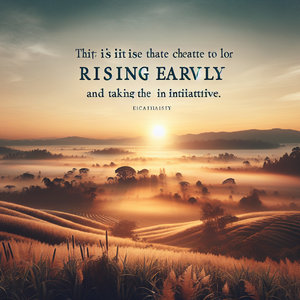The Rise of Square Careers in the Gig Economy

Square careers are characterized by their non-linear nature, allowing individuals to pursue roles that may not fit traditional career molds. In contrast to conventional job paths that often require climbing a corporate ladder, square careers embrace diversity and personalization. The gig economy, defined by short-term contracts, freelance work, and project-based tasks, provides fertile ground for these careers. Workers can choose assignments that resonate with their interests, enabling them to tailor their professional journeys to suit their lifestyles. For instance, a software developer may take on freelance projects, start a tech blog, and even teach coding workshops—all while fostering a unique career identity that reflects their passions and skills. This shift allows individuals to redefine success on their own terms, moving away from the singular focus on job titles and promotions.
Flexibility and Autonomy
One of the most appealing aspects of square careers in the gig economy is the flexibility they offer. Many gig workers appreciate the ability to set their own schedules, which can lead to improved work-life balance. For example, a freelance graphic designer can choose projects that align with their passions—be it branding for eco-friendly products or designing for non-profits—while having the freedom to travel or care for family. This autonomy fosters a sense of control and satisfaction that is often lacking in traditional employment. Moreover, this flexibility enables individuals to pursue side projects or hobbies that may eventually evolve into full-time careers. A musician, for example, may initially take on gig jobs while honing their craft, eventually leading to opportunities for recording and touring.
Creativity and Personal Branding
Square careers often encourage creativity and innovation. Gig workers have the opportunity to build personal brands and explore their creative potential without the constraints of corporate policies. The gig economy allows individuals to curate their professional identities and take ownership of their narratives. For instance, a musician may choose to offer music lessons, perform at local venues, and produce their own content for streaming platforms. This multifaceted approach not only diversifies income streams but also allows individuals to explore various aspects of their craft, leading to greater personal fulfillment. The ability to self-promote through social media and digital platforms further empowers gig workers to reach broader audiences and build meaningful connections.
Real-Life Success Stories
The rise of square careers is evidenced by numerous inspiring success stories. Consider the case of Sara, a former corporate lawyer who transitioned to becoming a travel blogger and freelance writer. Through her blog, she shares her travel experiences, legal insights, and tips for navigating life abroad. Her unconventional career path has not only provided her with financial stability but has also allowed her to engage with a community of like-minded individuals passionate about travel and adventure. Another example is Tom, a former software engineer who now works as a digital nomad. By taking on project-based contracts, he has traveled to over 20 countries while working remotely. Tom’s story exemplifies how the gig economy has enabled him to pursue his passions for travel and technology simultaneously. These narratives highlight the diverse possibilities that square careers can provide, inspiring others to explore their own unconventional paths.
Challenges and Considerations
While the gig economy offers numerous advantages, it is not without challenges. Gig workers often face income instability, lack of benefits, and the need for self-discipline. For instance, freelancers may experience periods of feast and famine, where months of high income are followed by dry spells. It is crucial for individuals considering square careers to weigh these factors and develop strategies for managing their finances and maintaining a healthy work-life balance. Additionally, gig workers must navigate the complexities of healthcare, retirement plans, and job security that are typically provided by traditional employers. Building a robust support network and continuously updating skills can help mitigate some of these challenges.
The rise of square careers in the gig economy represents a significant shift in how we perceive work and success. By embracing flexibility, creativity, and personal branding, individuals can forge unique pathways that align with their passions and lifestyles. As more people recognize the value of non-traditional roles, the gig economy will continue to flourish, providing opportunities for those willing to step outside conventional boundaries. The future of work is here, and it is diverse, dynamic, and full of potential for those ready to embrace it. With the right mindset and strategies, square careers can lead not only to professional success but also to personal fulfillment and a life well-lived.
Freelance UX/UI Designer
Startups, tech companies, and digital agencies
Core Responsibilities
Collaborate with clients to understand their business goals and user needs to create intuitive and engaging user interfaces.
Conduct user research, usability testing, and design iterations based on feedback.
Develop wireframes, prototypes, and high-fidelity mockups for web and mobile applications.
Required Skills
Proficiency in design tools such as Sketch, Adobe XD, or Figma.
Strong understanding of user-centered design principles and accessibility standards.
Excellent communication skills to present design concepts and rationale to clients.
Remote Digital Marketing Specialist
E-commerce companies, marketing agencies, and brands looking to enhance their online presence
Core Responsibilities
Develop and implement online marketing strategies across various platforms, including social media, email, and SEO.
Analyze campaign performance metrics and adjust strategies to optimize results.
Create engaging content that resonates with target audiences to drive brand awareness and lead generation.
Required Skills
Expertise in digital marketing tools like Google Analytics, SEMrush, and Hootsuite.
Strong writing and content creation skills, with a knack for storytelling.
Ability to adapt marketing tactics based on data analysis and market trends.
Independent Business Consultant
Small and medium-sized enterprises (SMEs), startups, and non-profit organizations
Core Responsibilities
Provide expert advice to businesses on operations, strategy, and organizational efficiency.
Conduct market research and competitive analysis to inform client decision-making.
Facilitate workshops and training sessions to enhance team performance and skills.
Required Skills
Strong analytical skills with experience in data interpretation and strategic planning.
Excellent interpersonal and communication abilities to build rapport with clients.
A background in business administration or a related field, often augmented with an MBA.
Content Creator for Social Media Platforms
Influencer marketing agencies, brands, and independent entrepreneurs
Core Responsibilities
Produce engaging multimedia content (videos, graphics, and written posts) tailored for platforms like Instagram, TikTok, and YouTube.
Analyze social media metrics to evaluate content effectiveness and adapt strategies accordingly.
Build and engage with an online community to foster brand loyalty and increase followers.
Required Skills
Proficiency in video editing software (e.g., Adobe Premiere Pro, Final Cut Pro) and graphic design tools (e.g., Canva).
Strong storytelling skills and a creative flair for visual content creation.
Knowledge of social media trends and algorithms to maximize reach and engagement.
Virtual Event Planner
Event planning companies, corporate organizations, and educational institutions
Core Responsibilities
Coordinate and manage virtual events, including webinars, workshops, and online conferences.
Work with clients to define event goals, budgets, and logistics, ensuring a seamless experience for participants.
Utilize event management software to facilitate registrations, communications, and post-event evaluations.
Required Skills
Strong organizational and project management skills to juggle multiple events simultaneously.
Familiarity with virtual event platforms (e.g., Zoom, Hopin, Eventbrite) and virtual engagement tools.
Excellent communication skills to liaise with vendors, speakers, and attendees effectively.


